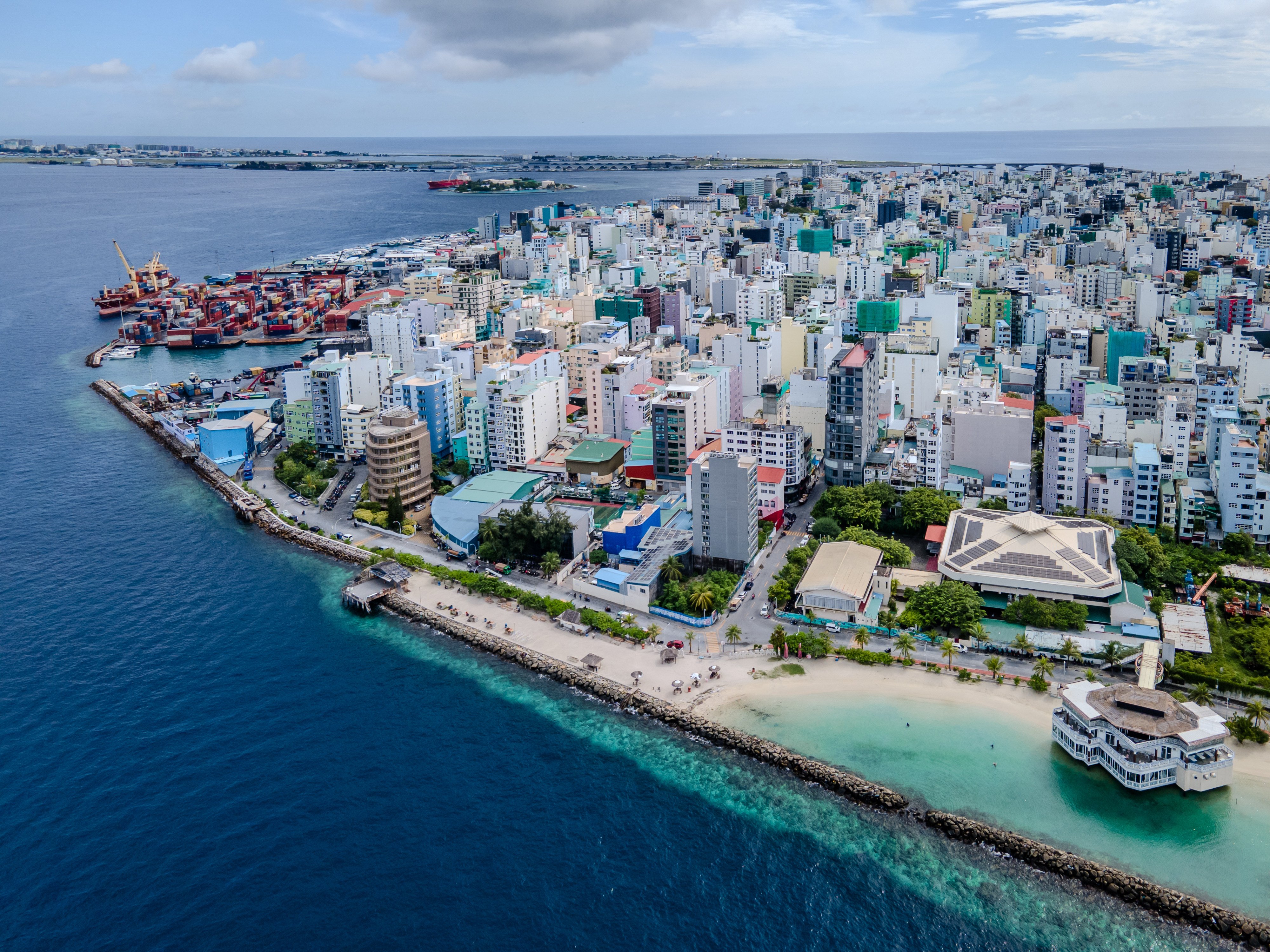Maldives plans US$8.8 billion tax-free ‘financial freezone’ to ease debt woes
The Indian Ocean nation hopes a massive Middle Eastern investment will transform the tourism hotspot into a global financial hub by 2030

Cash-strapped Maldives has signed a deal with a Dubai-based company to establish an US$8.8 billion investment zone aimed at diversifying the tourism hotspot into a “financial freezone”, the government said on Monday.
Three residential and office towers, a convention centre and hotels will form part of the Maldives International Financial Centre (MIFC), President Mohamed Muizzu’s office said in a statement.
“It will … position Male as the premier global business and financial hub in the Indian Ocean,” the statement said, adding it would allow the Indian Ocean archipelago to “diversify beyond tourism”.
The US$6.5 billion economy of the Maldives has been facing foreign exchange shortages since the Covid-19 pandemic and has been warned of a potential foreign debt crisis.
The announcement followed an agreement signed late Sunday with MBS Global Investments, a company owned by wealthy Qatari Sheikh Nayef bin Eid Al Thani.

The MIFC zone will have no residency requirements and offer “no corporate tax, tax-free inheritance … and privacy” the statement added.
It is set for completion by 2030 with its projected revenue “to be well over $1 billion by the fifth year”, according to the government.
In February, the IMF said the Maldives required “urgent and stronger” fiscal consolidation to stabilise its troubled economy, despite a thriving tourism industry.
The upmarket holiday destination expects its economy to grow by five per cent in 2025, but the IMF warned that the sunny outlook masked significant risks.
The tiny nation declined an International Monetary Fund bailout loan late last year, with the government instead announcing severe spending cuts.
Muizzu has taken a 50 per cent pay cut, and introduced a mandatory 10 per cent pay cut across most public-sector jobs.
In September, the Maldives described its financial difficulties as “temporary” and said it had no plans to seek a bailout, despite warnings of a possible sovereign default.
The Maldives is on the frontline of the battle against global warming, which could raise sea levels and swamp the nation of 1,192 tiny coral islands scattered across the equator.
China and India are the two largest bilateral lenders. Beijing has pledged further funding since Muizzu’s 2023 election victory, with the president thanking China for its “selfless assistance” in providing development funds.
Muizzu was welcomed in New Delhi in October by Indian Prime Minister Narendra Modi, who announced financial support to bolster the archipelago’s struggling economy.
Official data showed the Maldives’ foreign debt stood at US$3.37 billion in the first quarter of 2024, equivalent to around 45 per cent of gross domestic product.
China accounted for about 20 per cent of the external debt, while India held a little under 18 per cent.